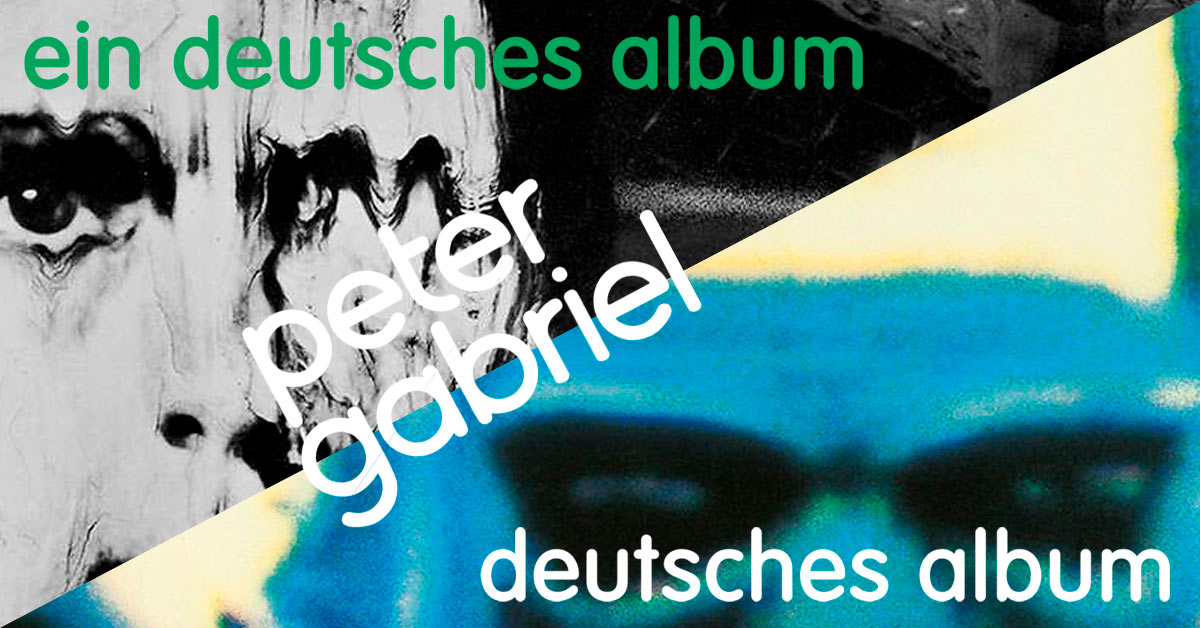- Article
- Read in 12 minutes
Peter Gabriel – the German albums (die deutschen Alben) – review and analysis
Peter Gabriel also released his third and fourth albums in German language. Harald Köhncke takes a separate look at these two special albums in Peter Gabriel’s discography.
The fan knows them, of course, yet they are often forgotten in the canon of Gabriel’s releases: ein deutsches Album (1980) and deutsches Album (1982).
Both Peter Gabriel’s third album (Melt) and his fourth (Security) were in fact released with German vocals parallel to the actual release. The following text is intended to inform about how this came about and what to make of the result.
It probably started when Peter Gabriel played the children’s song Me And My Teddy Bear on his tour for the second album in 1978/79 and performed it (besides English) in French and also in German. This was well received, especially in Germany. Regardless, Gabriel wished that people would understand his content. He also believed that a translated song in Japan and South America could help people understand his music.
In the end, however, only the German record company was interested in the non-English-language record project. The agencies in France, Italy, Japan, Portugal and Spain declined.
Peter Gabriel 3: ein deutsches Album
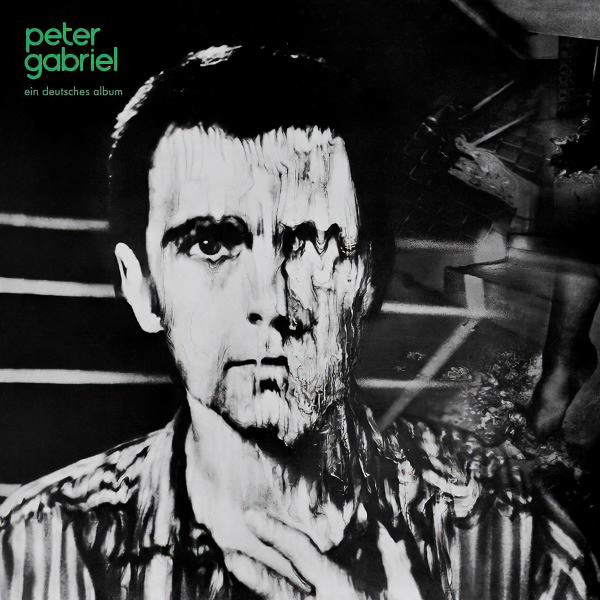
From the summer of 1979, Peter Gabriel recorded the songs for the third album, which was released on 30/5/1980. In Germany, Spiel ohne Grenzen (Games Without Frontiers) was released as a single in June before the German album. On 23rd June the English version entered the German charts, where it stayed for 21 weeks and reached number 9. The German version, on the other hand, was released a few weeks later and could only conquer the German charts for one week at the end of July – at number 65. The German album was also released in Canada and Austria.
For ein deutsches Album Gabriel acted as producer and was assisted by sound engineers Colin Green and David Lord (in the original, these positions were held by Steve Lillywhite and Hugh Padgham). The record was released with a lyric sheet and liner notes by Gabriel explaining the making of the album.
In addition to the songs on the album, another song was sung in German and in this case also completely re-recorded: Jetzt kommt die Flut (Here Comes The Flood). It appeared as the B-side of the first single Spiel ohne Grenzen, but also on other single releases in non-German countries. Musically, this version has more similarities with the one on Robert Fripp’s album Exposure and Gabriel’s 1990 re-recording for Shaking The Tree.
Comparison of the instrumentation of both versions:
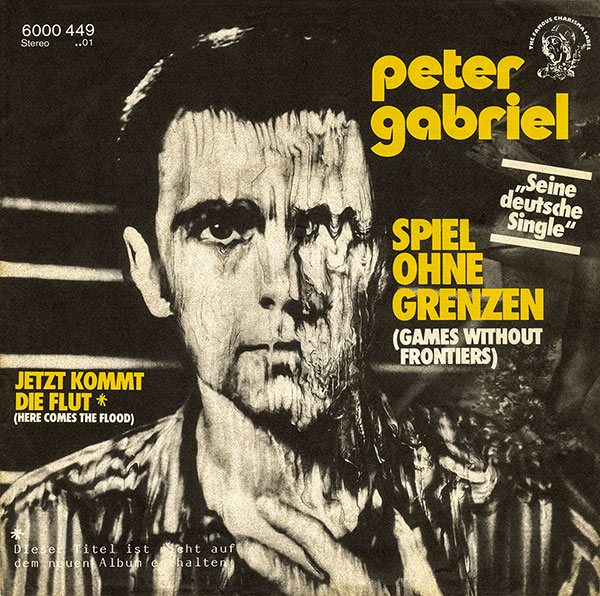
If we look at the music, we first notice that some songs have a different playing time than on the English version. Gabriel himself said that he had remixed three songs. However, there are minor differences in more than three songs, so it is not entirely clear which ones he meant here.
Eindringling (Intruder) is about ten seconds longer than in the English version because the whispered final part (Eindringling, Eindringling) is a little longer.
Keine Selbstkontrolle (No Self Control) is also about ten seconds longer than the original, here the keyboards fade out a tiny bit later at the end.
Start and I Don’t Remember were combined into one song called Frag mich nicht immer (re-translated: “Don’t Always Ask Me”), which is musically no different from the original version. Schnappschuss (ein Familienfoto)( Family Snapshot) is also identical.
Und durch den Draht (And Through The Wire), on the other hand, fades out about 30 seconds earlier.
No differences can be heard in Spiel ohne Grenzen (Games Without Frontiers). Du bist nicht wie wir (Not One Of Us), on the other hand, is probably mixed quite slightly differently, with small deviations at the beginning and end of the song that extend it by about 15 seconds.

Ein normales Leben (Lead A Normal Life) is also ten seconds longer, but this is simply due to additional silence at the end of the song.
The most obvious deviation from the first version is recognisable on Biko, because for the German album they did not use the original album version, but the so-called remix version (which is included on some Biko 12″ singles). It is easily recognisable because it starts with different vocals than the album version. It is also almost 90 seconds longer.
The lyrics were translated by or with Horst Königstein. He only joined the project when the original English album was already finished and about to be released. However, the aim was not necessarily literal or meaningful translations. Instead, it was important to Gabriel that the mood and the images conveyed by the words should correspond to those of the English version and that they should additionally contribute to the musicality of the pieces. For Gabriel’s understanding, the proposed German texts were each translated back into English word by word.
| English | German | |
| Intruder (4:54) | 01 | Eindringling (5:00) |
| No Self Control (3:56) | 02 | Keine Selbstkontrolle(4:00) |
| Start (1:21) | 03 | Frag mich nicht immer (6:04) |
| I Don’t Remember (4:42) | 04 | Schnappschuss (4:26) |
| Family Snapshot (4:29) | 05 | Und durch den Draht (4:28) |
| And Through The Wire (5:01) | 06 | Spiel ohne Grenzen (4:07) |
| Games Without Frontiers (4:07) | 07 | Du bist nicht wie wir (5:32) |
| Not One Of Us (5:22) | 08 | Ein normales Leben (4:21) |
| Lead A Normal Life (4:15) | 09 | Biko (8:55) |
| Biko (7:33) | 10 |
About Horst Königstein
Königstein, who was born in 1945 and died in 2013, began his professional career at Radio Bremen in the late 1960s and soon moved to NDR television. He worked there as a director, scriptwriter and producer, often combining documentary and staged (docu-drama). Above all, he shows popular and trivial culture again and again as a mirror of the times – with a visibly great desire for subjects, according to NDR.
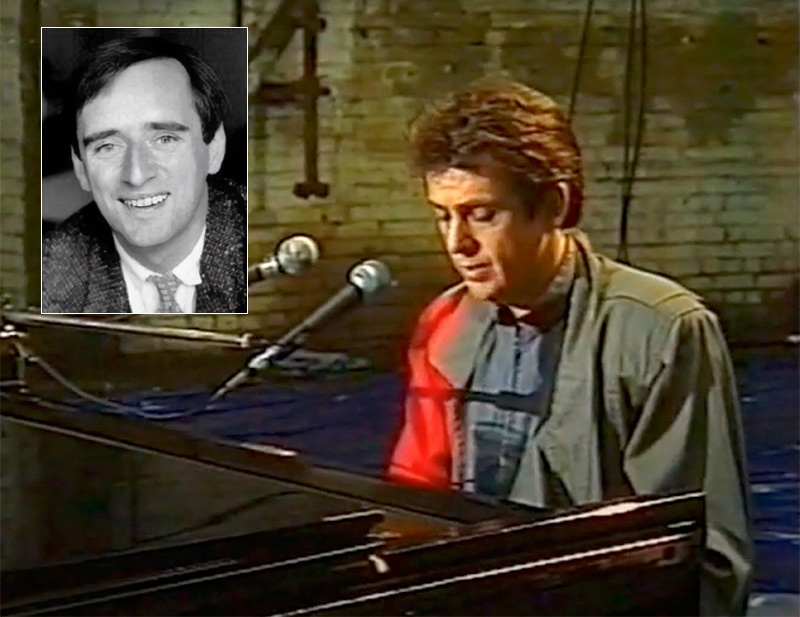
From 1990 Königstein was also a professor at the Academy of Media Arts in Cologne.
In Haus Vaterland (means smething like “House Homeland”) from 1984 (IMDb: 1983), he had Peter Gabriel perform Jetzt kommt die Flut on the piano (available also on YouTube) and in the two-part Reichshauptstadt – privat (1987), Gabriel even performed an unreleased cover version of Illusions (also available on YouTube). Note: there are several versions of this film, unfortunately the DVD does not include the performance.
For more information, see our interview with Horst Königstein from 1997.
Comparison of the texts of both versions:
German magazine “Der Spiegel” came to this conclusion: “The effort to jump over the language barrier seems bizarre, because the texts cannot always be understood exactly.”
Here, the sometimes awkward pronunciation of Peter Gabriel was obviously a problem, because acoustically the vocals are far in the foreground and very easy to understand.
In fact, Gabriel’s pronunciation on several songs is such that it distracts the German listener from the content and the music. For example, in Keine Selbstkontrolle, where he sings: “wenn der Näbäl sisch hebt” (the pronounciation of the word “Nebel” (fog) is far from being good, it’s like you sing “fag” instead of “fog” in English (yet the wrong German pronounciaion doesn’t deliver a different meaning here). In Du bist nicht wie wir (Not One Of Us) one wonders what “Ougn”. Augen” – eyes) are supposed to be and “bal chonn geht es ijhnen besser” (instead of “bald schon geht es Ihnen besser” is from Ein normales Leben.
Apart from that, the content-related theme of some songs shifts due to the free translation. In Eindringling, for example, there are clear sexual allusions in the text. Here Königstein says that Gabriel explained to him that the English lyrics are about masturbation…?

Frag mich nicht immer was given a less light, more depressive, text.
In several pieces, some lines simply make little sense: “Besser mit dem Messer die Leitung zerlegen”. Better cut the line with a knife” in Eindringling / Intruder); and “Leergeätzt, vorm Kopf ein Brett”. Etched empty, in front of the head a board” in Frag mich nicht immer).
“If looks could kill they probably will” was also translated ina rather unique way, using German colloquial language.. Könnten Blicke töten, wärt ihr flöten” in Spiel ohne Grenzen).
For Biko, the second and third verses were exchanged, otherwise the lyrics stick closest to the original. Here too, however, “Du löscht noch eine Kerze, doch nicht ein großes Feuer” does not exactly capture the meaning of “You can blow out a candle, but you can’t blow out a fire”. “Löscht” is more used for firefighting, no mention of blowing out a candle here.
Und durch den Draht is actually a cable or newswire, i.e. a journalistic news service. However, according to Horst Königstein, the song is about “…a sado-masochistic fantasy”.
In summary, ein deutsches Album is definitely worth listening to, but it does not replace the English original. Also, some of the lyrics are not convincing and Gabriel’s pronunciation is still in need of improvement. Although it was exactly in Gabriel’s interest to use the language onomatopoeically, this did not always work out well. Nowadays, the record should therefore be interesting mainly for fans who listen carefully and want to compare both music and lyrics and let them have an effect on them.
For the tour of the third album, Gabriel had planned to sing five songs in German. In the end, he performed four to five songs from the album in German at the German concerts, depending on the location, plus We Do What We’re Told (Milgram’s 37), which remained unreleased for several years and was then called Wir tun was Ihr sagt. Individual songs from the current record were also sung in English in Germany.
Peter Gabriel 4: deutsches Album
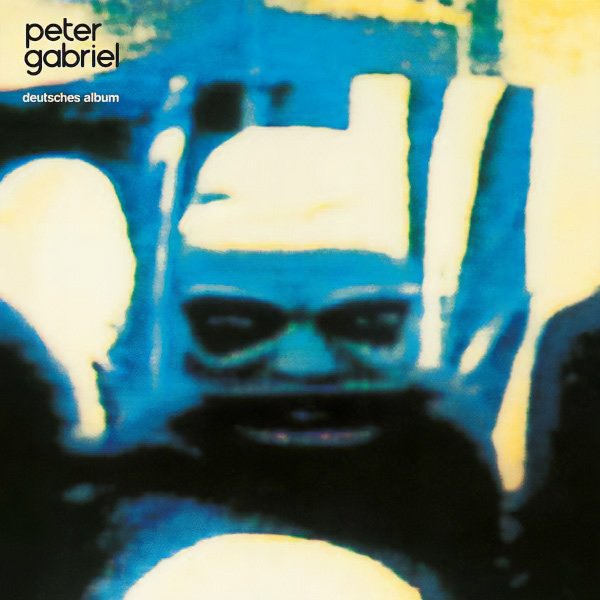
Peter Gabriel’s fourth album was released simultaneously in English and German on 10 September 1982. The German version was again also released in Canada. The mix engineer for the German version was Neil Perry.
In contrast to a German album, this time there are no German liner notes by Gabriel, but the entire booklet has been translated – not only the lyrics.
The album did not chart in Germany in either version. The only single released in the German version was Schock den Affen (Shock The Monkey – without chart position).
Comparison of the instrumentation of the German and English versions:
It is often said that the German version of this album is more interesting than the one of the third album because all the songs have been remixed. On closer listening and comparison with the English version, however, it turns out that some of the songs are either not remixes or the difference is hardly audible – apart from the vocals. In contrast to ein deutsches Album, this time some of the the background vocals have also been re-recorded. It should also be noted that the song order has been changed a little: Das Fischernetz (The Family And The Fishing Net) is number two (original four) and swaps places with San Jacinto (here: 4; original: 2).
| English | German | |
| The Rhythm Of The Heat (5:19) | 01 | Der Rhythmus der Hitze (5:22) |
| San Jacinto (6:34) | 02 | Das Fischernetz(6:50) |
| I Have The Touch (4:36) | 03 | Kon Takt! (4:32) |
| The Family And The Fishing Net (7:08) | 04 | San Jacinto (6:16) |
| Shock The Monkey (5:28) | 05 | Schock den Affen (5:48) |
| Lay Your Hands On Me (6:10) | 06 | Handauflegen (6:08) |
| Wallflower (6:38) | 07 | Nicht die Erde hat dich verschluckt (6:04) |
| Kiss Of Life (4:18) | 08 | Mundzumundbeatmung (4:55) |
Details:
Along with Kon Takt! (I Have The Touch), Der Rhythmus der Hitze (Rhythm of the Heat) is one of two songs where no significant difference in instrumentation is apparent.
Das Fischernetz is about 20 seconds shorter than in the English version. This is due to a relatively sudden ending, which was originally longer. It is also noticeable that the singing is more prominent than before.
San Jacinto is some 25 seconds shorter, mainly because the middle section is shortened. The beginning has also been slightly changed.
Schock den Affen (Shock the Monkey) is about 20 seconds longer than in the original, but differs only in the approx. last minute of the song. This final part has been slightly changed, but that does not make it better or worse.
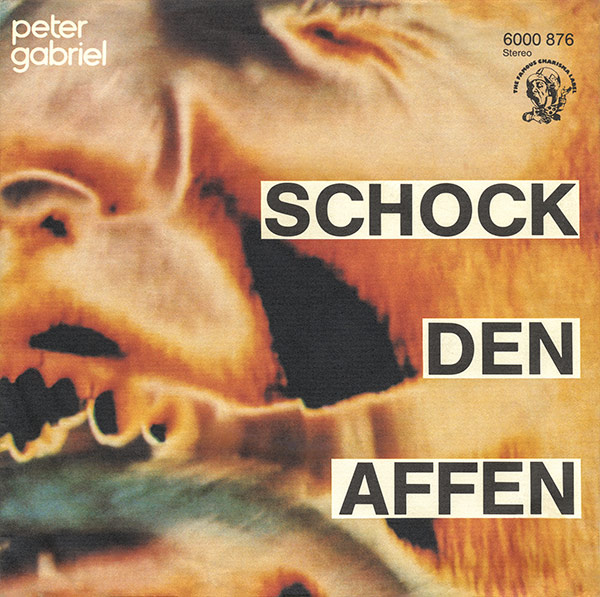
Handauflegen (Lay Your Hands On me) is the same length but still different. The intro builds up more slowly, with more emphasis on the percussion and the onomatopoeic vocals, which also seem to me to be sung more deeply than in English. As the song progresses, the vocals are mixed further into the foreground than before..
Nicht die Erde hat dich verschluckt (Wallflower) is about 35 seconds shorter than the original, due to a shorter and also different sounding intro, where the vocals start much earlier.
In contrast, Mundzumundbeatmung (Kiss Of Life) is about 35 seconds longer, but sounds very similar to the original version for the most part. The difference is then the good, approx. 40 second long, additional outro.
Comparison of the texts of the German and English versions:
The translation of The Rhythm Of The Heat is appropriate in terms of content and gives the song a similar mood as before. This also applies to San Jacinto, although the German lyrics are quite difficult to understand.
In Das Fischernetz (The Family And The Fishing Net), the translation makes the meaning of the song even more cryptic than before. Similarly, in Nicht die Erde hat dich verschluckt (translated back: “The Earth Didn’t Swallow You”), one wonders whether this expression is really an equivalent of wallflower. Otherwise, however, the text fits well.
The German words of Kon Takt! are not always appropriate in my opinion. For “shake those hands” we hear “greif die Hand”. grab the hand”) and then later follows “Dein Mund spuckt es aus: Wakakawakaka”. Your mouth spits it out: Wakakawakaka”). As a result, the narrator here comes across as slightly insane, whereas the puns in English were rather funny.
The translation of Shock The Monkey is very faithful to the English text in terms of content, but the words sometimes sound like they need getting used to in German. This applies all the more to the sometimes poor pronunciation. For example, Gabriel repeatedly calls out “Ofen! Ofen!” (which doesn’t sound like “Affen” and also means “oven” in English), but he means the monkey.
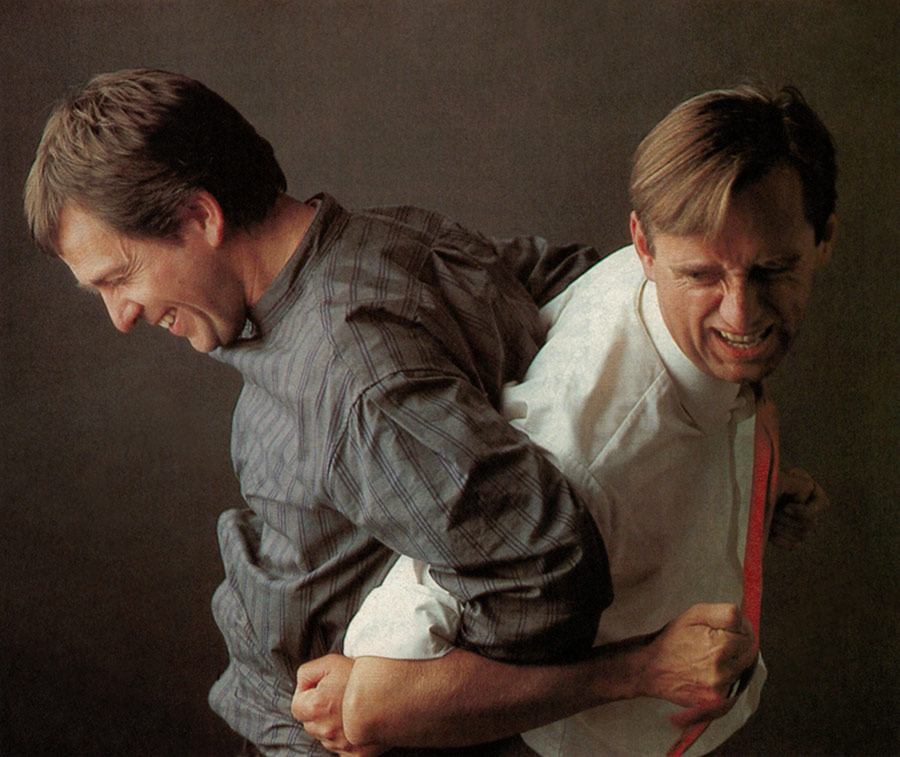
The lyrics of Handauflegen fit the song quite well, at most it would be worth mentioning that the repeated phrase “Handauflegen”. laying on of hands”) in the final part seems less manic in German (than in English) and more evocative.
That leaves Kiss Of Life / Mundzumundbeatmung, whose lyrics sound less poetic in the new version and more explicit and weird instead. In addition, the repetition of the expression “Kiss of life” sounds quite good, but “Mundzumund”, which is spoken several times in German, is less fitting. The first association here would probably be less one of saving lives than of (mouth-to-mouth) propaganda. There are also pronunciation errors in this song, when the word “brennen”. burn”) sounds like “brähnen”.
In 2011, Gabriel then apologised in an interview with the Frankfurter Rundschau for the bad accent of the lyrics of his German albums.
All in all, however, one has to say that Gabriel’s German pronunciation is somewhat better on the fourth album than on the third.
My original thought that this German version was more exciting in terms of music than the one on the third album, I see as disproved after the intensive comparison. For one thing, there are also several songs on the older release that have been given a new mix, and furthermore, there are also some songs on album number four that hardly sound any different from the English version.
Nevertheless, German is an exciting album for the fan and also more pleasant to listen to because of the rounder lyrics and pronunciation.
On the tour, Gabriel then performed four to five songs in their translation in our countries. Depending on the concert, he also played Jetzt kommt die Flut. In contrast to the previous tour, however, he sang most of the songs from Peter Gabriel 3 and Peter Gabriel 4 in the original English.
The singer played Jetzt kommt die Flut live more often in Germany In the following years. Only very rarely he played one of the other German versions (Schnappschuss, for example).
In 1985, when Gabriel’s next album So was almost finished, he and Horst Königstein talked about making German versions of at least some songs again. This time, however, the record company intervened. Even later Gabriel told Königstein that he would like to work with him again. This did not happen.
Author: Harald Köhncke (März 2022)
Photos of Gabriel & Königstein taken from Stereoplay magazine 3/1983 (Gesine, Jürgen & Thomas)
Haus Vaterland: Screenshot
Both albums were remastered a couple of years ago. They are not available on CD right now.
Sources:
discogs.com
fr.de
Interviewdisc (Peter Gabriel)
it-Interview mit Horst Königstein
loudersound.com
ndr.de
PeterGabriel.com
Spiegel vom 6.7.1980
Wikipedia

